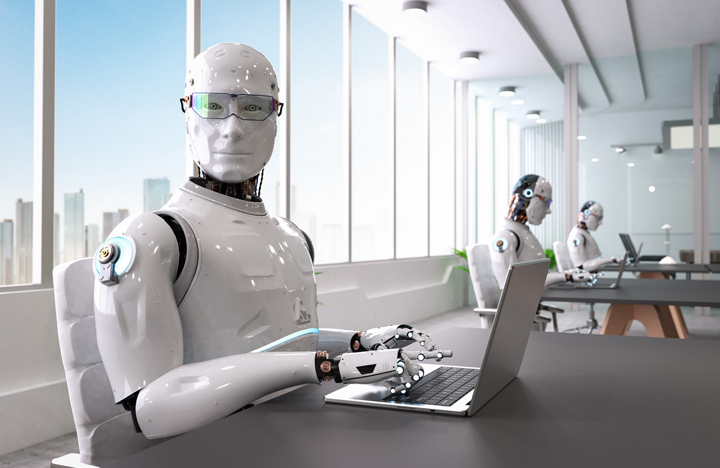Robots have become an integral part of our world, assisting in industries, healthcare, and even personal lives. As technology advances, the future of robotics promises even greater innovation, potentially leading to fully autonomous androids. However, ethical considerations, such as those proposed by Isaac Asimov in his famous Three Laws of Robotics, remain crucial to ensuring the safe integration of intelligent machines into society.
The Current Use of Robots
Today, robots are widely used across multiple sectors:
- Manufacturing – Industrial robots perform repetitive tasks with precision and efficiency, revolutionizing automotive, electronics, and assembly-line production.
- Healthcare – Surgical robots assist in delicate operations, while robotic exoskeletons help patients regain mobility.
- Logistics and Delivery – Warehouses use robotic arms for sorting, and autonomous delivery robots are being tested for last-mile transportation.
- Military and Defense – Robots are deployed for reconnaissance, bomb disposal, and unmanned aerial surveillance.
- Service Industry – Hospitality robots serve in hotels and restaurants, while customer service bots enhance interactions in banking and retail.
- Personal Assistance – AI-powered robots, such as robotic vacuums and virtual assistants, are becoming common household helpers.
The Future of Robotics
Looking ahead, robotics will become even more advanced, with significant developments in:
- Artificial Intelligence Integration – AI-driven robots will possess enhanced decision-making and learning capabilities, allowing them to interact more naturally with humans.
- Autonomous Vehicles – Self-driving cars and delivery drones will redefine transportation and logistics.
- Medical Advancements – Robots will not only perform surgeries but also provide companionship and care for the elderly and disabled.
- Space Exploration – NASA and other space agencies are developing robotic explorers to colonize planets and extract resources.
- Androids and Humanoid Robots – The ultimate goal of robotics research is the creation of lifelike androids capable of working alongside humans in everyday scenarios.
The Development of Androids
Androids—human-like robots—have been a staple of science fiction, but real-world efforts are catching up. Companies like Hanson Robotics and Boston Dynamics are working on humanoid robots with expressive faces and advanced motor skills. Challenges still remain, including:
- Realistic Movement and Interaction – Creating androids that move and communicate as naturally as humans.
- Energy Efficiency – Developing power sources that allow extended operation.
- Ethical and Social Implications – Addressing the impact of human-robot relationships, employment shifts, and societal acceptance.
Isaac Asimov’s Three Laws of Robotics
Science fiction writer Isaac Asimov introduced the Three Laws of Robotics in his 1942 short story collection I, Robot. These laws were designed to ensure the safe coexistence of humans and robots:
- A robot may not injure a human being or, through inaction, allow a human being to come to harm.
- A robot must obey the orders given to it by human beings except where such orders would conflict with the First Law.
- A robot must protect its own existence as long as such protection does not conflict with the First or Second Law.
These fictional laws have influenced real-world discussions on AI ethics, particularly regarding the need for safety protocols and responsible programming in robotics.
Ethical Considerations and Challenges
As we move towards a future with intelligent robots and androids, key ethical questions arise:
- Will robots have rights? If robots become sentient, should they be granted ethical or legal status?
- Job Displacement – How will automation affect employment, and how can society adapt?
- Security Risks – Can AI-powered robots be hacked or used maliciously?
- Human-Robot Relationships – What are the implications of emotional bonds with robots?
In Conclusion
Robotics is advancing at an unprecedented pace, shaping industries and daily life in ways previously thought impossible. While the development of androids is still in its early stages, the ethical considerations outlined by Asimov remain more relevant than ever. As we embrace this future, careful planning and regulation will be essential to ensure that robots serve humanity safely and responsibly.

Comments
Leave a comment